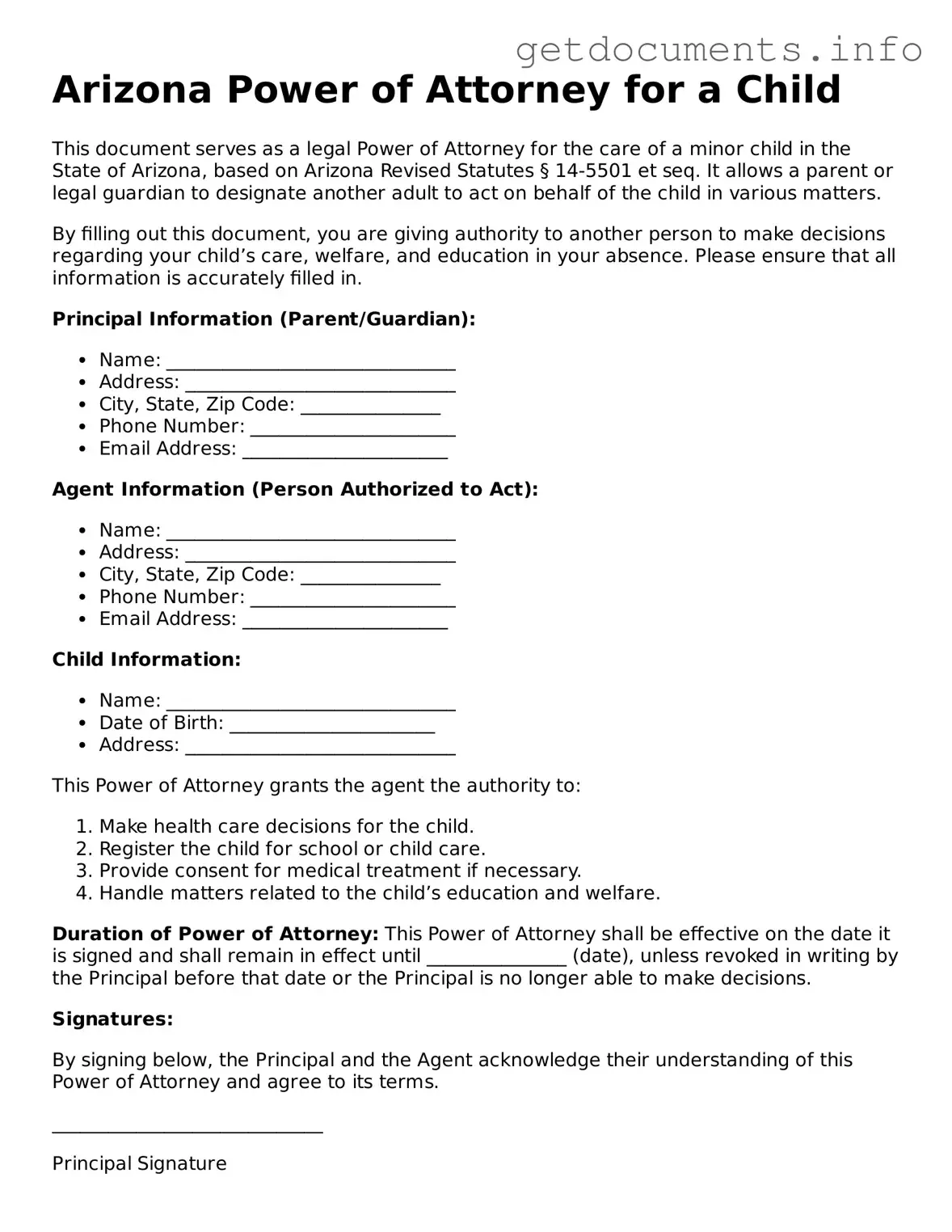Free Power of Attorney for a Child Template for Arizona
The Arizona Power of Attorney for a Child form is a legal document that allows a parent or guardian to grant authority to another adult to make decisions on behalf of their child. This can include decisions related to education, healthcare, and general welfare. Understanding how to properly complete this form is essential for ensuring your child's needs are met when you are unable to be present.
Ready to take the next step? Fill out the form by clicking the button below.
Access Power of Attorney for a Child Editor

Free Power of Attorney for a Child Template for Arizona
Access Power of Attorney for a Child Editor
Got places to be? Complete the form fast
Fill out Power of Attorney for a Child online and avoid printing or scanning.
Access Power of Attorney for a Child Editor
or
⇩ PDF File
